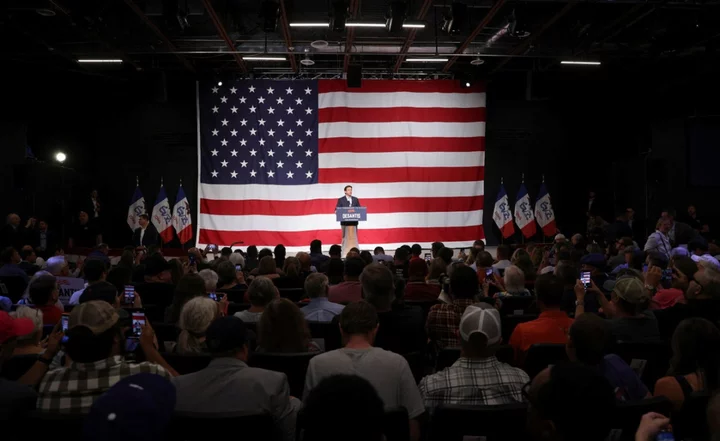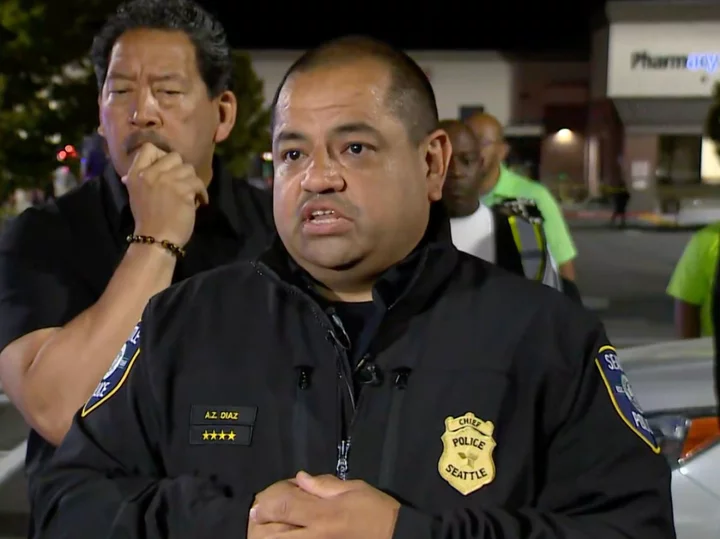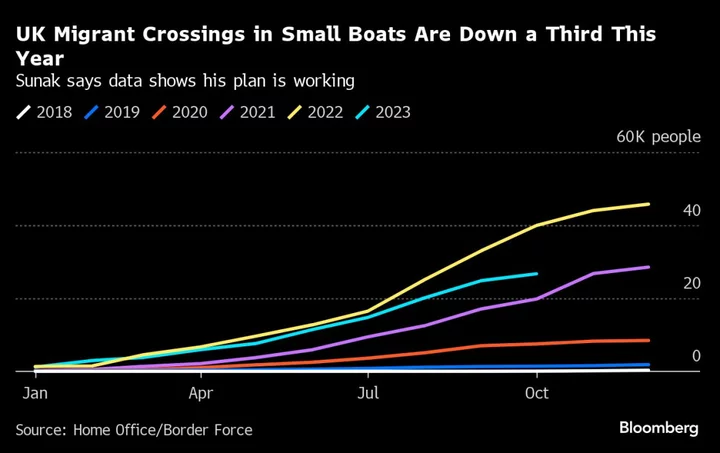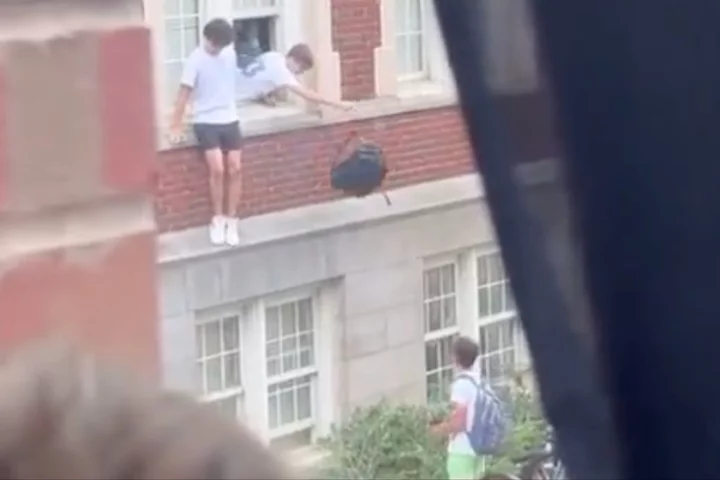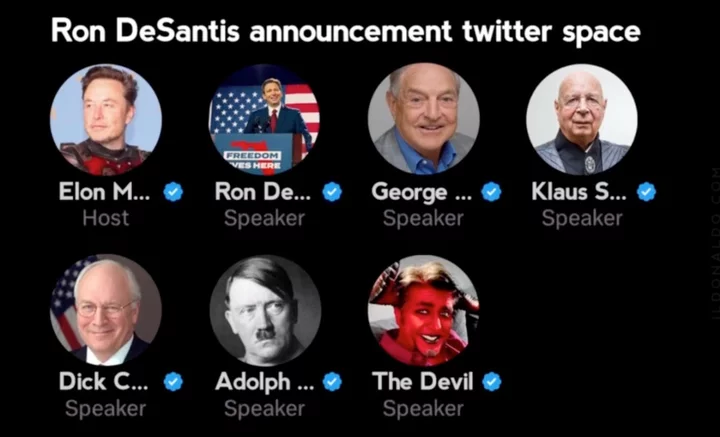Ron DeSantis is officially running for president, and on Tuesday landed in the early caucus state of Iowa to give voters a preview of what his campaign will look like.
What that shaped up to be in Des Moines was largely what analysts had expected for months: a bid for higher office that leans into Republican culture war battles and as far away from direct confrontation with the incumbent de facto leader of the party, Donald Trump.
Mr DeSantis spoke to an enthusiastic crowd that cheered enthusiastically at his vows to score major wins on those issues like LGBT+ rights and “critical race theory”, but less for his veiled shots at the former president, who was never mentioned by name for obvious fear of losing the audience. The governor instead heaped his criticism on Joe Biden and the administrative state which he hinted that Mr Trump had failed to rein in.
He was joined by his wife, Casey, and a handful of state-level elected officials — a preview of the battle that is no doubt shaping up in the state where the governor will have his first (and potentially only) real chance to prove that he can credibly compete with the former president, who has turned his fire wholly on his top rival in recent weeks amid continued polling showing the governor falling further behind him.
Here are five things you should remember about Tuesday night’s rally going forward into the 2024 primary season:
1. DeSantis was backed by powerful state officials
In a clear coup for the DeSantis campaign, the Florida governor charged into his rally on Tuesday backed by both Iowa’s governor and lieutenant governor, Kim Reynolds and and Adam Gregg respectively.
To be clear: in a pre-Trump political world, this would be a massive advantage for any candidate to have. Winning the endorsements of the two highest-level officials in state government, let alone at one’s launch rally, is a sign of political dominance that would make any candidate other than Donald Trump think twice about even competing in the state.
But Mr Trump is no ordinary opponent, and his continued star power in the GOP far outstrips that of any GOP statewide official — even at home. The former president’s endorsement hasn’t proven to be ironclad, seeing key defeats to opponents of Mr Trump on various sides of the political spectrum in 2022, but it’s fair to say that Mr Trump remains a credible competitor, even perhaps the frontrunner, to win in Iowa regardless of Ms Reynolds and Mr Gregg’s endorsements.
2. The governor won’t touch Trump
Mr DeSantis was more than eager to turn his sights on Joe Biden and the actions of his administration during the speech. Not so much for Mr Trump, who was not mentioned by name at all in the governor’s remarks.
The desire of Mr DeSantis to avoid a confrontation with the former president might be more convincing, however, had he not indirectly referenced Mr Trump multiple times during his remarks — including at one moment when he asserted that four years in office was simply insufficient to rein in America’s bureaucracy. Even George Washington, the governor charged, would be unable to do so in that amount of time.
Mr DeSantis’s tone notably changed when speaking to reporters after the event ended — “He used to say how great Florida was... Hell, his whole family moved to Florida under my governorship,” he noted of the former president. But that fire has yet to emerge in front of those who actually decide elections: voters.
The governor therefore appears to be largely stuck in limbo; unwilling or unable to land a blow against Mr Trump when it counts, but more than cognisant of his need to do so.
3. Culture wars rise to the top
The greatest targets for criticism on Tuesday were not Mr Biden or his team in the White House at all. Mr DeSantis reserved his harshest tone for so-called “woke” ideologies such as support for LGBT+ rights among public officials and private businesses. He vowed to purge any teachings he deemed remotely “inappropriate” for children from schools, and pledged to do the same to the military and other federal agencies if elected president.
This is Mr DeSantis’s true strategy: master the issues that make GOP voters the angriest, and bet that it will propel him not just through a primary race against Donald Trump but to the White House against Joe Biden as well. The governor argued that keeping the attention on these issues and presenting a “positive” alternative to Mr Biden’s vision for America would be their ticket to a victory.
4. Pressure against Republicans on the debt ceiling
After Donald Trump came out and said that Republicans in Congress should “do a default” unless they score significant concessions from Democrats in legislation to raise the debt ceiling this week, Mr DeSantis upped the ante further and declared on Tuesday that Republicans should oppose the idea entirely.
He railed at the idea of raising America’s debt ceiling by $4 trillion and warned that the GOP’s existing cuts to spending secured in a Saturday-night deal between Joe Biden and Speaker Kevin McCarthy were not enough — America would still be spiralling towards bankruptcy, he asserted.
Expect that to raise the stakes for hardline conservatives in Washington this week as Mr McCarthy hopes to whip as many votes as possible in his caucus to support the bill aimed at averting a default on the US’s loans.
5. Leaning on parents in the battle for suburbia
One last interesting theme that Mr DeSantis’s rally touched on multiple times was the idea of families and parents having sovereignty over their kids, their local schools, and other entities.
It was hardly a surprising point for the Florida governor to tout, given his signing into law several bills affecting the teachings allowed in schools in the Sunshine State which have been decried by the NAACP and other organisations. But it also played into another larger dynamic that has been playing out across the country for several years.
The governor’s repeated statements of support for parents and his efforts to draw support from conservative-aligned education activists are part of the greater GOP’s response to a trend that quickened sharply under Donald Trump’s presidency: the blue-ing of America’s suburbs, which have trended steadily Democratic in recent years while the party simultaneously lost its grip on blue collar voters in the Rust Belt and other areas.
His strategy mirrors the one pursued by Virginia’s Glenn Youngkin in 2021, which led to Mr Youngkin beating out former Gov Terry McCaulife and becoming the first Republican to win a statewide election in that purple state since 2009.
Read MoreDeSantis hits familiar targets of Fauci, Disney and ‘wokeism’ in first rally as 2024 candidate
Ron DeSantis called out for ‘ignoring’ Hollywood beach shooting: ‘He doesn’t care’
LGBTQ people are fleeing Florida in ‘mass migration’ with some fundraising via GoFundMe
Ivanka and Jared split over attending Trump 2024 launch – follow live
Why was Donald Trump impeached twice during his first term?
Four big lies Trump told during his 2024 presidential announcement

